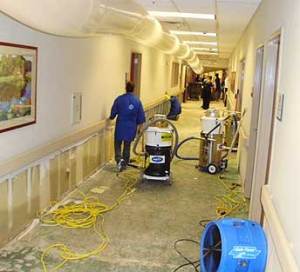“…The EEOC’s lawsuit…charged that Sandbar instituted a policy of removing pregnant women from its Sunday schedule at its Peoria restaurant in an attempt to allegedly satisfy its male Sunday football  customers… it believed its male customers did not wish to see pregnant women while they watched Sunday football games. Working on Sundays during football season was the most or one of the most lucrative shifts during the week for the pregnant employee…”
customers… it believed its male customers did not wish to see pregnant women while they watched Sunday football games. Working on Sundays during football season was the most or one of the most lucrative shifts during the week for the pregnant employee…”
A Peoria, Ariz., restaurant will pay $15,000 and furnish other relief to settle a pregnancy discrimination lawsuit filed by the U.S. Equal Employment Opportunity Commission (EEOC), the agency announced today. The EEOC had alleged that West Sand, LLC, doing business as Sandbar Mexican Grill, unlawfully removed a pregnant employee from working on Sundays during football season because she was pregnant.
According to the EEOC, pursuant to this policy, Sandbar removed a pregnant woman from its lucrative Sunday schedule, causing her a significant loss of income. Sandbar denied the discrimination.
Sandbar Mexican Grill will pay $15,000 to the female employee to resolve this EEOC case. Under the consent decree settling the suit, Sandbar also must also (1) provide anti-discrimination training for all employees who work at its Peoria location; (2) review and revise, if necessary, its policies to ensure they prohibit sex and pregnancy discrimination as well as retaliation and ensure a strong and clear commitment to a workplace free of such bias; (3) investigate allegations of sex discrimination, pregnancy discrimination and retaliation promptly, fairly, reasonably, and effectively and ensure that appropriate corrective action is taken; and (4) post a notice that sex and pregnancy discrimination -or retaliation for complaining about it – is unlawful.
“Pregnancy discrimination remains a persistent problem in the 21st-century workplace,” said Mary Jo O’Neill, regional attorney of the EEOC’s Phoenix District Office. “Employers cannot disadvantage the terms and conditions of a pregnant employee’s work to satisfy an assumed customer preference about the physical appearance of employees, which is likely untrue in any event.”
EEOC District Director Rayford Irvin added, “The EEOC will continue to be vigilant in rooting out pregnancy discrimination. This type of unlawful exclusion is never a winning game plan.”
For more:Â http://www.eeoc.gov/eeoc/newsroom/release/11-28-12a.cfm










